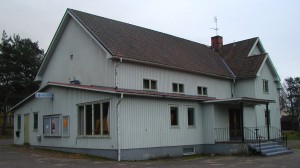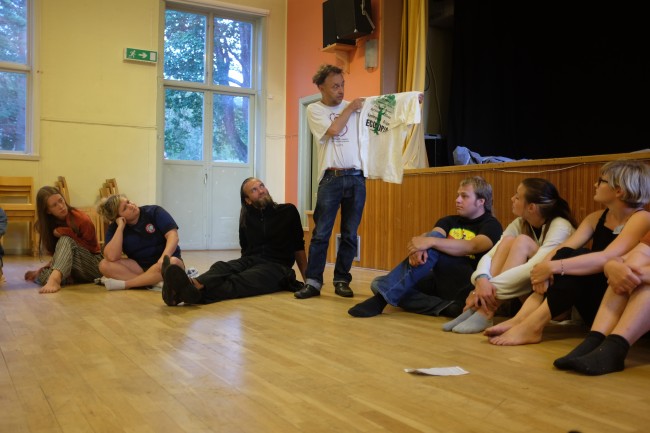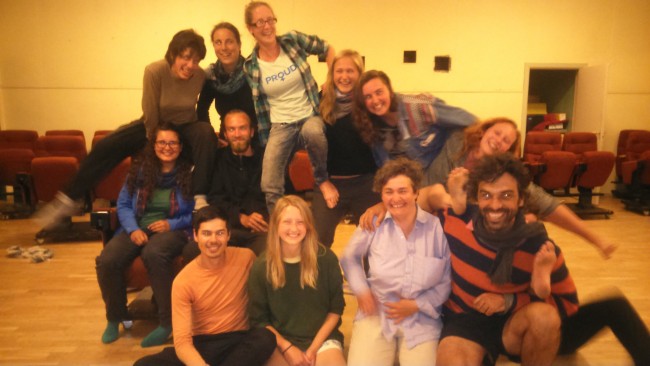On August 17, the Biketour visited Färnebo folkhögskola, a folk high school in Österfärnebo, about 150 km north of Stockholm.
Folk high schools are a Scandinavian concept of people’s education, where people have the opportunity (usually between finishing school and starting university) to do a one-year course about a subject of their choice (read more here). Färnebo folkshögskola is, by what people have told us, the most radical folk high school in Sweden. The students live in a house next to the school, where they learn to live communally by making consensus decisions and sharing daily tasks like cooking and cleaning. This year, there are two different courses: Feminism and Environmental Justice, a course including journey to the Ands, the main teacher being a native from Latin America, and Tear Down All Walls, a course about racism, migration and asylum.
The director of the school is Lars, and – surprise! – EYFA was founded in his living room, and he was one of the initiators of Ecotopia. So we sat together with him and the students of the school and received a lecture about our own history.
It all started in 1986 when some environmental activists got together in Sweden to think about actions how to raise awareness about the dying of the forests due to environmental pollution. When they got in contact with activists from other countries, they realised that there are similar problems all across Europe, so they decided to create a network which they called European Youth Forest Action, or short EYFA. Together, they organised a bus tour through Europe, where they drove around Europe for six weeks and stopped twice a day in cities on the way in order to do one action: They would dress up as trees that would happily move in the wind for a while. At some point, someone dressed as a coal power plant (or something similar, I don’t quite remember) would come and blow some smoke onto them, and they would all fall over and lie there dead.
They repeated the bus tour in the following years, and in 1989, for the first time they decided to organise a big environmental camp at the end of the tour. They called it the Ecotopia Gathering.
In 1990, the people organising the second Ecotopia Gathering had the idea to do the tour by bike instead of by bus, and this is how the first Ecotopia Biketour was born. Under the theme “Take a bike to Ecotopia (take a car to hell)”, up to 125 people joined the tour on its way from Bergen in Norway to the Ecotopia Gathering close to Budapest (read more about former Biketours).
EYFA (later extending its range of political topics beyond the environment and thus renaming itself to European Youth For Action) continued to organise an Ecotopia Gathering every year until 2008. The large network of activists and groups involved in the gathering would organise the Biketour to each gathering.
In 2008, the Ecotopia Gathering happened in the north of Turkey, and there was a big problem with police violence, more than a hundred people getting arrested. As a result, it was decided to stop organising the Ecotopia Gatherings.
But the Biketour went on. In 2009, the Ecotopia Biketour was organised independently from EYFA for the first time, and has since happened every year.
Only having joined the Biketours in 2013–2015, I have the feeling that the original aim of the Biketour, uniting activists from all over Europe in order to travel around and do political actions on the way, has been lost and forgotten over the years. It has been mentioned a lot in the last years that the Biketour has become more of a holiday for leftist people who want to see different projects and live as a community, rather than an “activist community”, as it calls itself often. Hearing about the history of the Biketour has certainly inspired us to focus more on doing more actions again in the future.








